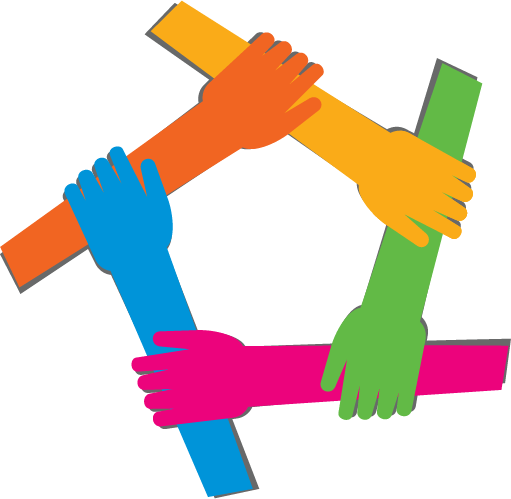It seems like newcomers to recovery often ask in 12-step meetings “why do I have to hear the same stories over and over again?” Many times I’ve heard things like: “because it works;” “my sponsor says it’s important;” “just do it;” “stop asking questions;” “your thinking got you here.”
I’ve only recently realized that stories make us who we are.
 I happen to be Jewish. My parents and all of my relatives are and were Jewish too. Some of them spoke Yiddish, especially when they didn’t want me to know what they were talking about. I still know a few Yiddish words. I don’t go to Temple. I do not practice any Jewish religious ritual, but sometimes I miss them.
I happen to be Jewish. My parents and all of my relatives are and were Jewish too. Some of them spoke Yiddish, especially when they didn’t want me to know what they were talking about. I still know a few Yiddish words. I don’t go to Temple. I do not practice any Jewish religious ritual, but sometimes I miss them. My wife was raised Catholic. Her family highly valued the tenets of Catholicism. My father-in-law once lobbied for his wife to have her own parish. Fact is she was truly spiritual and helped a lot of people.
My wife was raised Catholic. Her family highly valued the tenets of Catholicism. My father-in-law once lobbied for his wife to have her own parish. Fact is she was truly spiritual and helped a lot of people.My wife doesn’t go to church either. But she will always be Catholic and I will always be Jewish. It’s got nothing to do with going to houses of worship or religious rituals. It’s all to do with the stories we grew up with and who we have become. I enjoy being with my wife and her relatives when they share the stories they grew up with, but I can’t get it like they do.
 We share our experience, strength and hope because our stories bind us together. When we share our stories, we know each other. I think the sharing of our stories is the “We” in the first step of the 12-step program, (We admitted we were powerless over alcohol – that our lives had become unmanageable”). It is the essence of spirituality. Without “We” there is no spirituality. Without our stories, there is no “We.”
We share our experience, strength and hope because our stories bind us together. When we share our stories, we know each other. I think the sharing of our stories is the “We” in the first step of the 12-step program, (We admitted we were powerless over alcohol – that our lives had become unmanageable”). It is the essence of spirituality. Without “We” there is no spirituality. Without our stories, there is no “We.”Your Past Defines Your Present
Life is a journey. No one just wakes up at age 30 and suddenly becomes and alcoholic or a drug addict. The process of developing an addiction can take months or even years, but the beginnings of addiction can often be traced back all the way back to childhood. Without realizing it, the decisions we make and the things that happen to us throughout our lives lead us down a path. For people in Alcoholics Anonymous or in any sort of addiction treatment program, they have been led down the path of addiction – but this doesn’t have to be a dead end.
No one just wakes up at age 30 and suddenly becomes and alcoholic or a drug addict.Sharing and reliving the stories along your journey will allow you to understand why and how addiction took control, which will better allow you to gain control of it. Family history, untreated or undiagnosed psychological conditions and several other biological and environmental factors are often large contributors in addiction. Understanding this can help alleviate feelings of guilt, shame and self-hatred that often follow addicts through addiction and then into recovery.
Draw Strength and Give Inspiration
 Beyond the exploratory reasons for sharing stories and experiences in addiction and recovery, speaking openly to a group can be cathartic and inspirational. Most of the people a recovering addict will speak to will include other addicts who are in different stages of recovery. Your story may hit home with a fellow addict in recovery and could inspire them and perhaps prevent a relapse.
Beyond the exploratory reasons for sharing stories and experiences in addiction and recovery, speaking openly to a group can be cathartic and inspirational. Most of the people a recovering addict will speak to will include other addicts who are in different stages of recovery. Your story may hit home with a fellow addict in recovery and could inspire them and perhaps prevent a relapse.Sharing stories is also a way to get advice and draw strength from others. Group sessions are supposed to be judgment free, meaning you don’t have to worry about feeling ashamed of yourself or worried about what someone may think of you. Everyone in a recovery group is struggling with addiction and possibly a mental disorder – there’s no room for judgment anywhere.
Perhaps the most underrated benefit of sharing one’s stories in recovery is friendship. Countless lifelong friendships have been forged during the lowest of the lows of recovery. The best thing a recovering addict can do to help their long-term success is surround themselves with a network of sober friends. This allows all parties to draw strength from one another and hold each other accountable.
Why Addicts Shouldn’t Avoid Sharing
When you accept that addiction is a disease which must be managed over the course of a lifetime, you accept that recovery never ends. There’s a reason why people who have been sober for several years continue to go to AA meetings and continue to share their stories. Beyond helping others with their struggles, continuing to share allows a person to remain grounded and keep perspective. As time passes, it can be easy to forget the lessons we’ve learned. Continuing to share and listen to stories in addiction is a constant reminder of the power of addiction and the freedom sobriety brings.
For recovering alcoholics and drug addicts, there will never be a time when life is free from temptation. There will never be a time when problematic thoughts don’t creep into our minds and push us toward destructive behavior again. Sharing your feelings and stories as you continue on the road of recovery allows you to be honest with yourself – it also allows others in the group to keep you honest as well. One of the first signs that a recovering addict may relapse is when he or she socially withdraws and stops sharing stories.
Offer a Kind and Open-Minded Ear
 Especially early on in recovery, you may be frustrated hearing the same stories from the same people over and over again – but there are others who may be benefiting from it. That story you’ve heard four times already may be helping someone else who has never heard it before. It may be helping the person who is telling the story to remember the mistakes that led them to addiction. It could be serving as a lesson for someone who is facing a similar situation.
Especially early on in recovery, you may be frustrated hearing the same stories from the same people over and over again – but there are others who may be benefiting from it. That story you’ve heard four times already may be helping someone else who has never heard it before. It may be helping the person who is telling the story to remember the mistakes that led them to addiction. It could be serving as a lesson for someone who is facing a similar situation.It’s important to remember that many drug addicts and alcoholics have been ostracized, abandoned by friends and family and have lost everything of value in their lives. Recovery is the one place where they can go to feel accepted and loved for who they are; this is something that everyone in the world desires.
Be sure to be respectful of your peers in addiction rehab and their stories. Just as you seek to be understood and acknowledged, so too do your brothers and sisters in recovery.




Leave a Reply
You must be logged in to post a comment.